Inside the walls of a 'haunted' Victorian prison
- Published
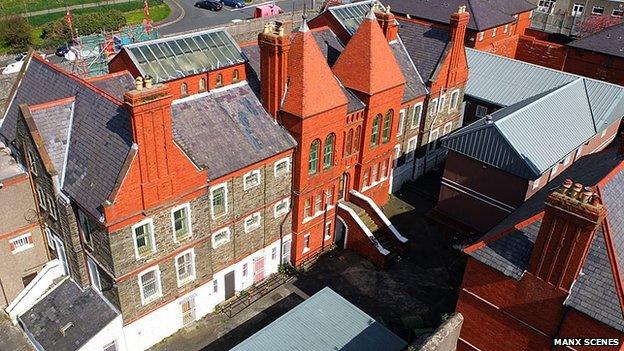
The Victoria Road prison opened in 1891 to replace Castle Rushen at the Isle of Man's sole jail
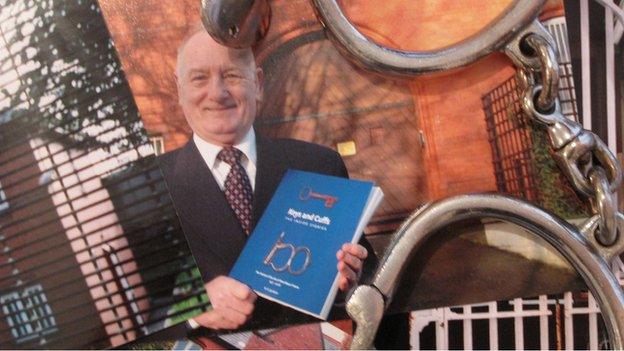
Norman Quilliam worked as a prison officer at Victoria Road for almost two decades
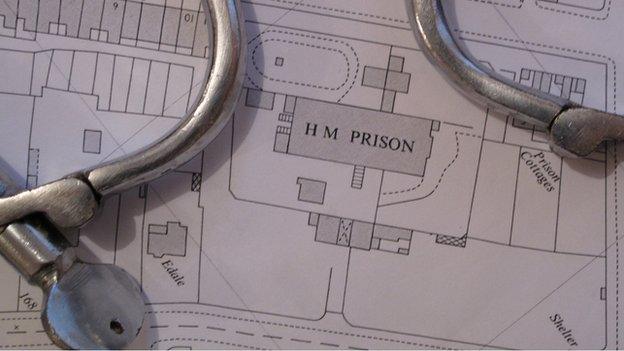
The Victoria Road prison is built on a 2.5 acre site in Douglas in 1891
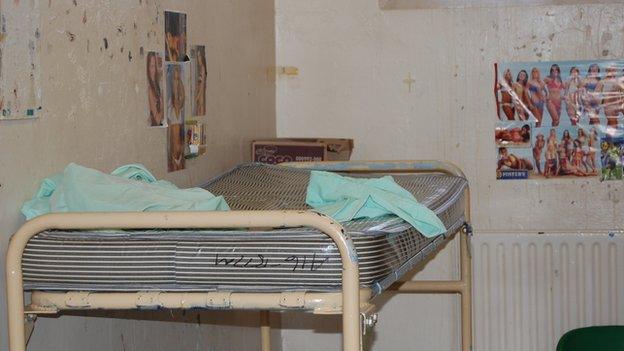
The Victoria Road Prison was decommisioned in 2008 with inmates transferred to a new jail in Jurby
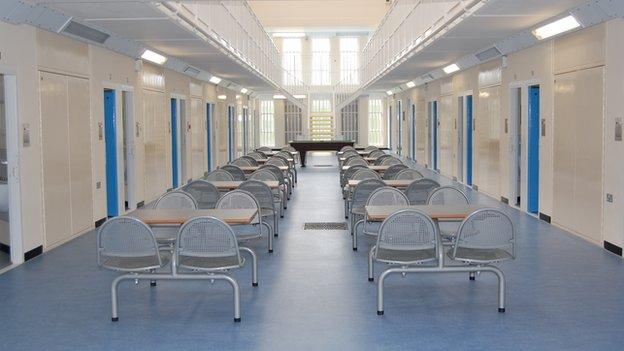
It was replaced with the new Jurby prison which cost the Isle of Man government £41.7m
After more than 100 years containing the Isle of Man's most notorious criminals, the imposing red brick walls of Victoria Road prison in Douglas will be reduced to rubble over the coming months.
In 2008, the Victorian prison was decommissioned and inmates were transferred to a new £41.7m facility in the north of the island.
Norman Quilliam joined the prison service in 1967, having first been turned down for being an inch to short.
The 73-year-old, said: "I met some interesting people inside those walls. I also met some atrocious ones. But there were also many things that I couldn't explained."
'Absolutely terrified'
During his twenty years as a prison officer at Victoria Road he witnessed several unexplainable events within the prison' s towering walls.
"Cells three and four were definitely haunted, he said.
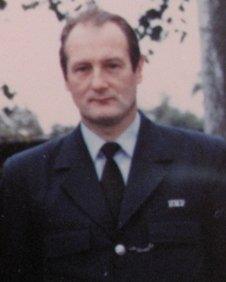
Mr Quilliam said many inmates at Victoria Road kept bibles under their beds
"One day an inmate rang his bell and was shouting get me out of here, get me out of here! There are noises coming from upstairs.
"I showed him there was nothing there and asked him what he had experienced. He was adamant that someone was banging on the ceiling.
"He was absolutely terrified."
According to Mr Quilliam, years earlier a man had committed suicide in the same cell.
The former officer said several prisoners kept bibles under their beds to protect them from the evil spirits.
"I personally experienced bad things in our sleeping room on the wing and above the jailor' s office.
"One time I was physically shaken and I sought solace in the catholic priest. I am not a religious man but I was scared".
In 1973, James Richard Lunney was convicted of the Golden Egg murder in Douglas, and became the last man in the British Isles to be sentenced to death.
He remained on death row at Victoria Road for a few weeks but his sentence was later commuted to life imprisonment.
Mr Quilliam said, he was held in cell number 13 which was later to become known as the condemned man's cell.
"There were ghostly entities in there and I can't explain anymore than that.
"They say the dead won't harm you; it's only the living which harms you. That's what I tried to remember when I was working here".
'Grim history'
First opened in 1891, Victoria Road replaced the 18th Century Castle Rushen, which had been described as the 'worst prison in the British Isles'.
According the Isle of Man government the demolition will cost around £71,000 and take four months to complete.
Home Affairs minister Juan Watterson, said the prison was "a reminder of a rather grim history in the Isle of Man".
He said: "It represents a time where we weren't living up to our international obligations, with two people to a cell and you still had slopping out. I think that is a good enough reason to clear the site."
In 2001 an HM Prison Inspectorate report concluded Victoria Road was not fulfilling obligations under international human rights law.
Prisoners were still expected to slop out and eat meals in the cells alongside their sanitary buckets.
Mr Quilliam said there is no question that facility was at the "end of its working life".
"Slopping out was of course considered by many people to be inhumane and it was crowded at times, although I thought the cells were alright. I slept in a lot smaller rooms when I was in the army.
"There is no doubt at all that it needed to be decommissioned, for the inmates but also for the staff.
The retired officer used to live in one of the three prison cottages on the Victoria Road site, which were themselves knocked down in 1988 for a female wing to be built.
"There were three cottages. I lived there alongside the prison' s chief officer and the senior officer. I brought my four children up there. It was a real shame that they went but it had to be done.
"It would have been nice to see the building kept as a social history museum but it's all about money these days."
It is not yet known what will be built on the site.
- Published16 November 2012
- Published12 November 2012